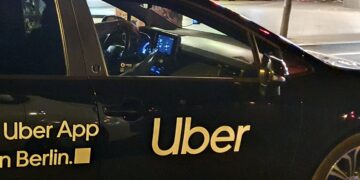At the end of February 2014 a notice suddenly appeared in the press: the American company Uber will be offering taxi services in Brussels via a dedicated app. Great was my surprise that I, as Brussels Secretary of Transport, had to hear this news via the media. Since the end of 2013 my government had conducted informal talks with representatives of the U.S. firm.
During these conversations I had urged Uber to submit a proposal, as usual, to the Brussels Capital Region. This file could then have formed the basis for a constructive dialogue about the move of Uber to Brussels. As Brussels Minister for Transport and Information Policy I’m quite interested in a sophisticated app as Uber. It could, after all, have given the Brussels taxi industry a new impetus.
But instead of opting for dialogue, Uber sought and found the confrontation with the Brussels authorities. Uber chose – without much consultation with the government – to offer ‘taxi rides’ via private drivers and private vehicles. As Brussels Minister for Transport, I have a problem with such an approach. Indeed, it is my duty, in the interest of the user, to monitor the quality of service. By unilaterally evading all the rules, making such a quality check becomes very difficult.
And what rules are they? Uber is both in violation of the specific rules for Brussels taxis as with federal Belgian law: Insurance: Professional drivers have a specific insurance. Passengers involved in an accident with a taxi, are thus insured at all times. But the Uber-vehicles have no such custom- made insurance so that the insurance company will not be interested to compensate the loss after an accident. Technical checks: A Brussels taxi vehicle must undergo an inspection every six months.
Uber-vehicles are not bound by such rules. A certificate of competence for the driver: Brussels taxi drivers must pass rigorous testing. For Uber-drivers this requirement does not apply. Taxes: Brussels taxi drivers pay taxes on their income. And there is a VAT rate of 6 percent on every trip performed.
It is unclear whether Uber pays these taxes. It was therefore to be expected that a Brussels court would find that Uber does not comply with the relevant rules. And that’s what happened mid-April 2014. Not hampered by any knowledge about the Brussels taxi world, European Commissioner Neelie Kroes called me the ‘Brussels minister of anti-mobility’ after this judgement. If that means I keep working consistently towards compliance with the rules and to protect the taxi users, then I consider such a title even a badge of honour.
Still, I am and I remain open to innovative initiatives in the Brussels taxi sector. As Brussels Minister for Transport, I have supported numerous innovative projects, like the extension of the nighttime taxi service Collecto, the launch of 50 electric taxis, the introduction of the digital taximeter and so on. These new initiatives were each established with respect for the applicable rules and in close consultation with the various stakeholders. Uber can, as far as I’m concerned, also be added to this list, but then Uber must first be completely ‚Brussels Proof’.






